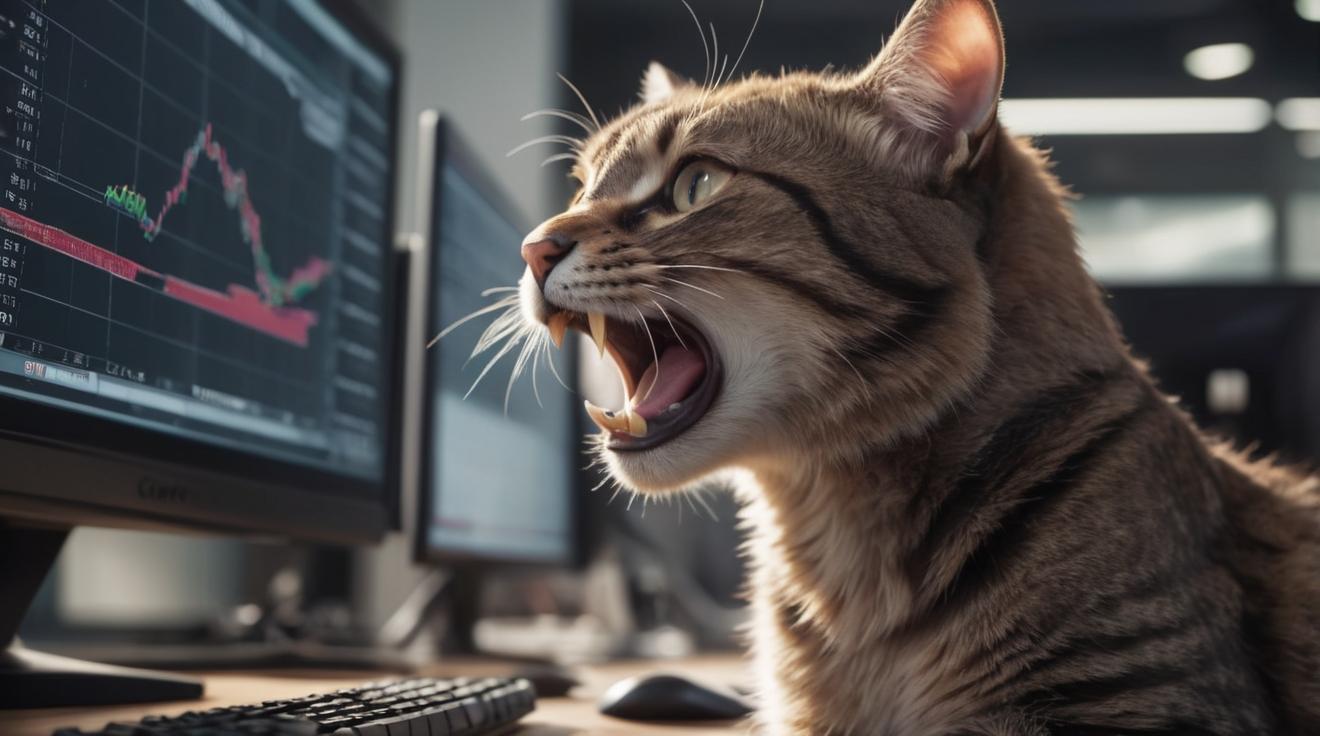Roaring Kitty Amasses $262 Million in GameStop Shares, Raising Market Manipulation Concerns
As Keith Gill, better known by his online aliases “Roaring Kitty” and “Deep F—-ing Value,” amasses a staggering $262 million in GameStop shares, the investing community is questioning the true extent of market manipulation. The latest surge in GameStop Corp. fever has sparked fresh debates among both Wall Street veterans and retail traders about what defines fair market play.
Over a two-week span, Gill frequently showcased images of his burgeoning GameStop stake and call options, which peaked at over $550 million. Although he has since bolstered his holdings further, the decline in GameStop shares has seen the dollar value of his portfolio fluctuate.
GameStop Fever Reignites Market Manipulation Debate
The initial 2021 GameStop rally fundamentally challenged the practice of short-selling, demonstrating the sheer power a passionate online community like Reddit can wield over market movements. Today’s existential question revolves around whether posting a meme to trigger instant profits undermines the spirit of free and fair markets. Could Roaring Kitty now be the Goliath in this evolving David vs. Goliath narrative?
“The original meme stock craze pitted us against those shorting beloved companies like GameStop,” stated Steve Sosnick, chief strategist at Interactive Brokers. “Nowadays, it’s unclear who ‘them’ is.”
Questionable Intentions and Losing Charm
Once hailed as the populist orchestrator of a short squeeze that shook Wall Street, Gill is now viewed with suspicion. Former fans and trading firms alike are questioning his motives, asking whether this could be a classic pump and dump scheme. By Thursday, snapshots of Gill’s brokerage account indicated his earlier position of 120,000 call options had been divested, while his holdings surged to approximately 9 million shares, valued at more than $262 million.
Market Volatility and Investor Caution
Gill’s actions have once again sent GameStop's price soaring, leading the company to capitalize by selling over $2 billion worth of stock. However, the highly volatile landscape means that anyone who bought shares in the past month is just as likely to incur losses as see profits. Hedge funds and sophisticated investors, better prepared now than three years ago, stand to gain at the expense of Gill’s retail-trading followers. As Don Steinbrugge, CEO of Agecroft Partners, noted, “Retail investors will eventually wise up to the risks involved.”
Manipulation Concerns and Regulatory Scrutiny
The episode has intensified discussions about what constitutes market manipulation. The Wall Street Journal reported that Morgan Stanley-owned E*Trade was contemplating banning Gill from its platform due to concerns, after already banning personalities like Dave Portnoy of Barstool Sports.
Craig Marcus, a partner at Ropes & Gray, pointed out, “Market manipulation generally involves pushing a price higher to profit from the movement. If Gill’s snapshots are legitimate, that isn’t evidently the case.”
Regulatory and Public Opinion Shifts
Gill faced accusations of market manipulation back in 2021, with lawsuits alleging his influence skewed market dynamics. “Three years ago, this was funny,” remarked Peter Atwater, an adjunct professor of economics at William & Mary. “Now, it bothers people more, indicating that such behavior is less likely to be tolerated.”
When Gill announced his highly anticipated return to YouTube on June 6, the stock surged nearly 50%, actually adding $16 billion to GameStop’s market value within hours. During his livestream, viewed by hundreds of thousands, Gill acknowledged the potential scrutiny from fans and regulators.
“Do I have to be careful about what I say here?” he pondered.
In conclusion, the blend of meme stock fervor, market manipulation concerns, and the polarized figure of Roaring Kitty continues to present a complex, evolving narrative in the financial world.













